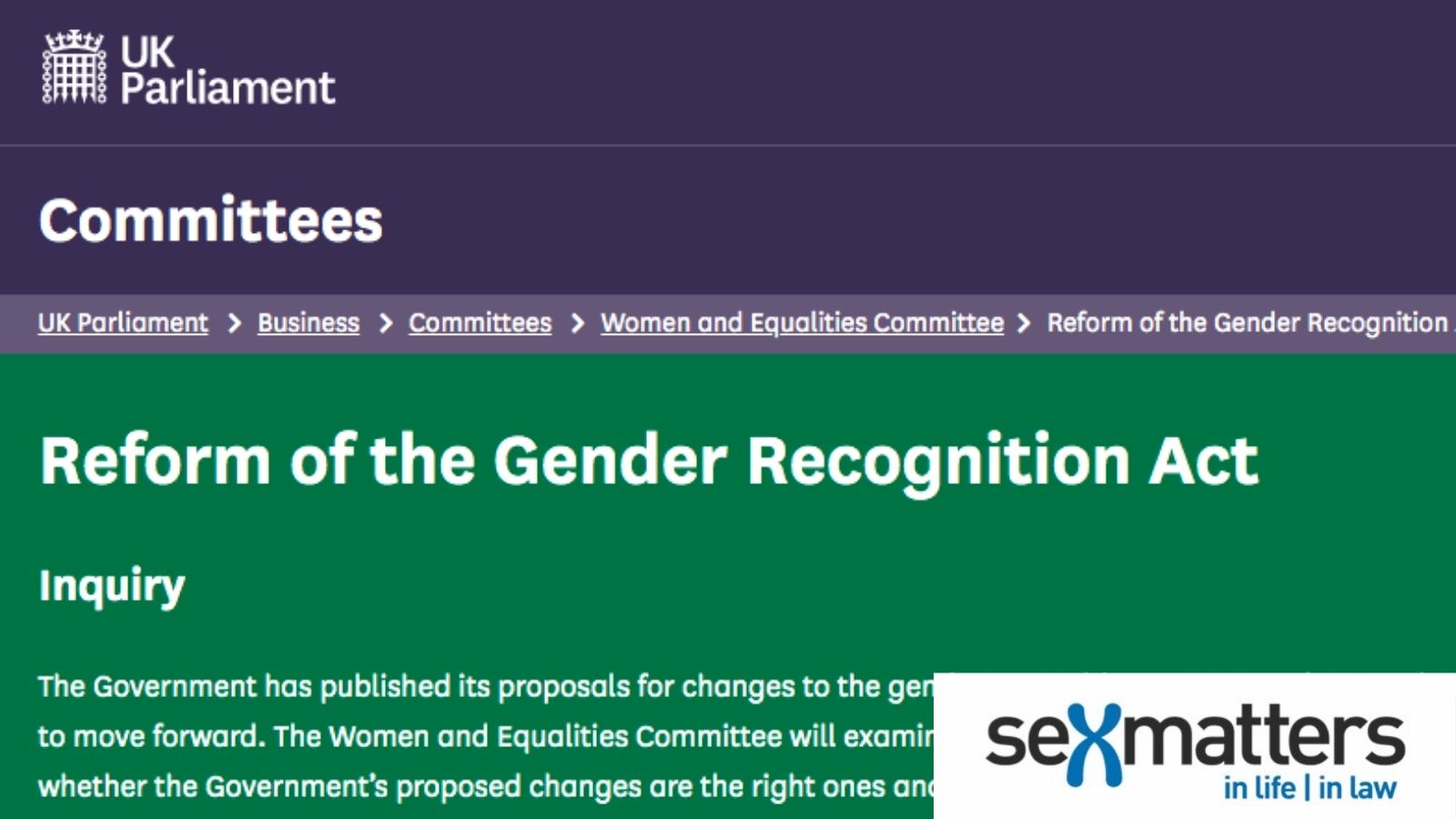GRA Reform: Evidence to the Women and Equality Select Committee
We submitted evidence to the Women and Equality Select Committee’s Inquiry into Reform of the Gender Recognition Act.

Sex Matters submitted evidence to the Women and Equality Select Committee’s Inquiry into Reform of the Gender Recognition Act in November 2020.
It has now been published (html, pdf) by the Committee.
Our submission concentrates on eight of the Committee’s questions
- What else should the Government have included in its proposals? The government should consider the impact on women of any proposal.
- Will the changes make the process “kinder and more straightforward”? The process will make the process more user-friendly; but perceptions that the current process is overly onerous are not supported.
- Why is the number of people applying for GRCs so low? The number of people applying for GRCs is not low, it is in line with original estimations of demand by transsexuals.
- Should the requirement for diagnosis be removed? No. Allowing people to change legal sex without medical oversight would lead to greater numbers of people misdiagnosing themselves.
- Should the spousal consent clause be reformed? No, the spousal consent clause provides a critical protection for the rights of the non-transitioning partner.
- Are there challenges in the way the GRA and Equality Act 2010 interact? Yes. A key challenge is that the protected characteristic of sex has become confused by misleading guidance.
- Are the provisions for single-sex and separate-sex spaces and facilities clear and useable? The provisions in the Act are wide ranging and reasonably clear but they have been made unusable by guidance that undermines clarity on single sex services.
- Are legal reforms needed to better support the rights of gender-fluid and non-binary people? No. No legal reforms should be made which further confuse the matter of sex. There is no particular reason why people’s subjective sense of themselves requires bureaucratic recognition.
We make six recommendations
- GEO should publish clear guidance on single and separate sex services in the Equality Act.
- The Department for Education should publish specific guidance for schools on the protected characteristics of “sex” and “gender reassignment”.
- The government should require all departments to ensure that the term sex is correctly used in their policies, equal opportunities monitoring and equality impact assessment frameworks.
- An amendment should be added to the Equality Act to clarify that the protected characteristic “sex” means sex in the common law sense.
- The Equality and Human Rights Commission (EHRC) should commission a review of charter schemes offered by private bodies to employers and develop principles to ensure they are in line with the Equality Act.
- The government should commission a review of the application of Section 22 of the Gender Recognition Act in public services to consider how “sex secrecy” provisions interact with, consent, safeguarding and other reasons why sex information is routinely disclosed and collected.
